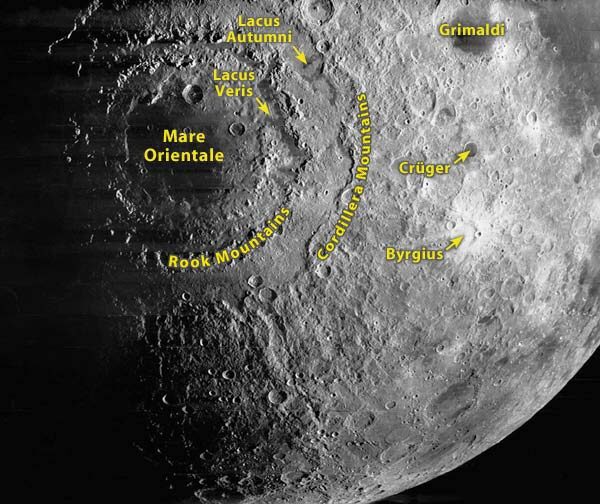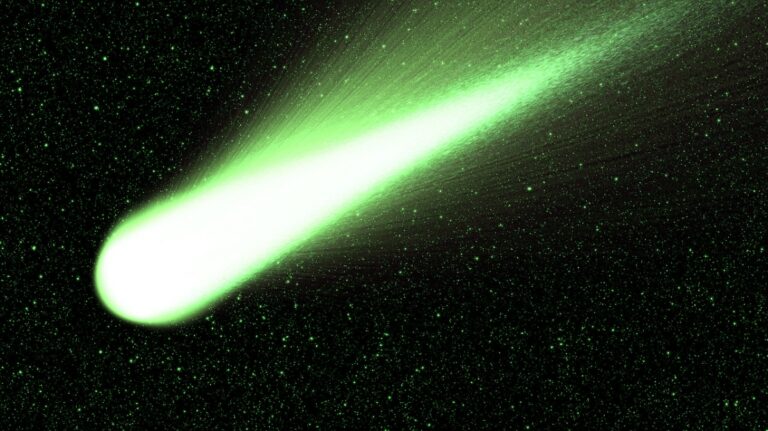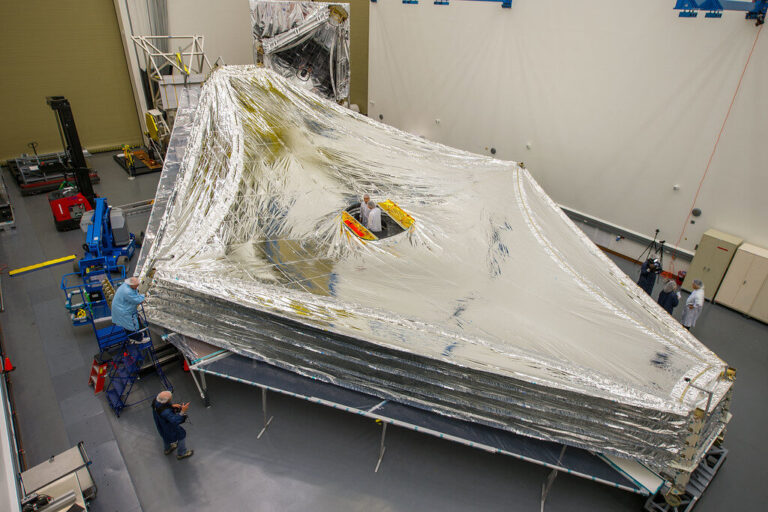If the Gravitational Force Disappears, What Would Happen to the Planets?
The gravitational force plays a crucial role in shaping the behavior and existence of celestial bodies in our universe. If this force were to suddenly vanish, the consequences for the planets would be catastrophic. Without gravity, the planets, including Earth, would break apart into pieces and float around in space. The sun, with its immense mass and gravitational pull, would also collapse, leading to the breakdown and explosion of other stars in the universe. Eventually, the entire universe would transform into a plain soup of atoms. On Earth, without the force of gravity, everything would become weightless, causing humans and objects to move about like fast-moving tumbleweeds. Additionally, the lack of gravity would prevent the planet from pulling down air and water, resulting in apocalyptic devastation such as the shattering of everyone’s inner ear and the immediate crumbling of concrete structures. This absence of gravity would even cause water to transform into hydrogen gas, triggering explosions within every living cell. Overall, the disappearance of gravity would lead to the destruction of the planets and the universe as we know it.
Key Takeaways:
- The absence of the gravitational force would cause the planets, including Earth, to break apart and float in space.
- The collapse of the sun due to the lack of gravity would result in the breakdown and explosion of other stars in the universe.
- Without gravity, everything on Earth would become weightless, leading to chaotic movement of humans and objects.
- The disappearance of gravity would have devastating effects on Earth, including the disruption of air and water, and the crumbling of concrete structures.
- Water would transform into hydrogen gas without gravity, causing explosions in every living cell.
The Catastrophic Breakdown of Planets Without Gravity
Without the force of gravity, the planets in our solar system, including Earth, would break apart into countless pieces and begin to float freely in the vast expanse of space. The absence of gravity’s binding force would unleash chaos and destruction on a cosmic scale.
The sudden loss of gravity would result in the disintegration of the planets, causing them to fragment into smaller chunks. These fragmented pieces would then drift aimlessly through space, devoid of any gravitational pull. The once-stable orbits of the planets would be disrupted, and they would no longer hold their positions in relation to the other celestial bodies.
As the planets break apart, their formerly solid surfaces would give way to a multitude of floating debris. The planetary fragments would be scattered across the universe, forever separated from their original forms. The vastness of space would become an echoing graveyard of fragments, silently bearing witness to the catastrophic breakdown that occurred.
In this state of planetary disarray, the once-beautiful and harmonious system of our solar system would be forever lost. The absence of gravity’s guiding hand would leave behind only remnants and the haunting silence of cosmic turmoil.
| Consequences of Gravity Loss on Planets |
|---|
| Planets break apart into fragments |
| Fragmented pieces float aimlessly in space |
| Disrupted orbits and loss of stability |
| Planetary debris scattered throughout the universe |
The Collapse of the Sun and the Universe
The disappearance of gravity would trigger the catastrophic collapse of the sun, the most massive object in our solar system, leading to a chain reaction that would result in the breakdown and explosion of other stars within the universe. Without the gravitational force holding the sun together, its immense mass would cause it to collapse in on itself, creating intense pressure and heat. This collapse would generate a massive explosion known as a supernova, releasing an unimaginable amount of energy and scattering the remnants of the sun into outer space.
This explosion would have far-reaching consequences for the surrounding stars and the entire universe. The explosion of the sun would send shockwaves through space, causing nearby stars to also collapse and explode. This chain reaction would continue, with more and more stars succumbing to the absence of gravity and meeting a similar fate. The universe, once filled with vibrant celestial bodies, would gradually transform into a chaotic soup of atoms, devoid of the structure and order we currently observe.
As the collapse of the sun and other stars unfolds, the universe would be forever changed. The absence of gravitational force would disrupt the delicate balance that holds galaxies together, leading to their disintegration and dispersion. Countless stars, planets, and other celestial objects would drift aimlessly throughout the vast expanse of space, forever altered by the loss of gravity.
The End of an Era
The disappearance of gravity would mark the end of an era for the sun and the universe at large. The collapse of the sun, once a beacon of light and life-giving energy, would unleash unimaginable destruction on a cosmic scale. The universe, once a tapestry of breathtaking wonders, would succumb to chaos and entropy, forever changing the course of astronomical history. The consequences of gravity’s disappearance are indeed dire, reminding us of the vital role it plays in maintaining the order and stability of the cosmos.
| Consequences of Gravity’s Disappearance: |
|---|
| 1. Catastrophic collapse of the sun |
| 2. Explosion and breakdown of other stars within the universe |
| 3. Disintegration and dispersion of galaxies |
| 4. Transformation of the universe into a chaotic soup of atoms |
Weightlessness and Chaotic Movement on Earth
In the absence of gravity, everything on Earth would experience weightlessness, and humans and objects would move around like fast-moving tumbleweeds, lacking any stable or predictable trajectory. Without the force of gravity pulling them down, individuals would find it challenging to maintain their balance or stay grounded. The concept of up and down would lose its meaning, causing disorientation and a constant sensation of floating.
The lack of gravity would pose significant challenges for everyday activities. Walking, running, or even sitting would become a struggle, as the absence of a gravitational force to anchor individuals would result in constant motion. Objects would also be affected, with any attempt to place them down resulting in their floating away into the unknown.
In this weightless environment, it would be challenging to perform routine tasks. Simple actions like eating, drinking, or typing on a keyboard would require deliberate effort and focus to control movement. It would be akin to an otherworldly dance, with every action requiring careful coordination and precision to avoid losing control.
The Chaotic Nature of Weightlessness
Weightlessness would transform the familiar landscapes of Earth into a chaotic playground. As humans and objects drift aimlessly, there would be no predetermined paths or fixed destinations. The absence of gravity’s pull would turn our world into a realm of unpredictability, where even the smallest movements could lead to a series of unexpected encounters and collisions.
Imagine a world where tumbleweeds are no longer confined to arid deserts but instead fill the skies, propelled by invisible forces. The once steady and ordered nature of life on Earth would be replaced by a swirling ballet of floating bodies and objects, each following its own whimsical trajectory through the air. It would be a mesmerizing sight, but also a constant reminder of the absence of the gravitational force that once held everything in place.
Table:
| Effects of Weightlessness | Examples |
|---|---|
| Loss of Balance | Constant stumbling and difficulty in maintaining stability |
| Unpredictable Motion | Objects floating and drifting, making it challenging to control their movement |
| Disorientation | Feeling of confusion and disorientation due to the absence of gravity’s reference point |
| Complex Tasks | Daily activities becoming arduous, requiring immense focus and control |
Apocalyptic Devastation on Earth
The absence of gravity would lead to the immediate disruption of Earth’s ability to pull down air and water, resulting in apocalyptic devastation. The effects would be catastrophic, with far-reaching consequences impacting every aspect of life on our planet.
One of the first and most noticeable effects would be the shattering of everyone’s inner ear. Without gravity to hold the fluids in our inner ears in place, they would disperse, causing severe vertigo and loss of balance. This would make it nearly impossible for anyone to stand or even move without assistance.
Additionally, the lack of gravity would cause the immediate crumbling of concrete structures. Gravity provides the downward force that holds buildings and infrastructure in place. Without it, these structures would collapse, leading to widespread destruction and loss of life.
Furthermore, the absence of gravity would disrupt Earth’s ability to pull down air and water. This would result in a catastrophic disruption of our atmosphere and hydrosphere. Air would dissipate into space, leaving the planet devoid of breathable oxygen. Water would no longer be held in place, leading to massive floods and the loss of essential water sources.
| Consequences of Gravity Disappearance on Earth: |
|---|
| Shattering of inner ear |
| Crumbling of concrete structures |
| Disruption of atmospheric and hydrospheric balance |
Lastly, perhaps the most dangerous consequence of gravity loss would be the transformation of water into hydrogen gas. Without gravity to keep water molecules together, they would break apart, resulting in widespread explosions. Every living cell containing water would be at risk, leading to the destruction of all organic life on Earth.
This horrifying scenario highlights the fundamental importance of gravity in sustaining life as we know it. It serves as a stark reminder of the delicate balance that exists on our planet and the universe at large. Without gravity, the devastation would be both immediate and irreversible, leading to the destruction of the planets and the universe as we know it.
Transformation of Water into Hydrogen Gas
Without the force of gravity, water on Earth would undergo a transformation, turning into highly volatile hydrogen gas, causing explosions within every living cell. This dramatic change would have catastrophic consequences for life as we know it.
In the absence of gravity, the bonds holding water molecules together would weaken, leading to their disintegration. This process, known as dissociation, causes the hydrogen atoms within water molecules to separate from the oxygen atom, resulting in the release of hydrogen gas. The hydrogen gas produced in this reaction is highly combustible, making it extremely dangerous.
The explosions caused by the transformation of water into hydrogen gas would occur within every living cell. The delicate balance of our bodies relies on the presence of water to function properly. However, without gravity, water would no longer provide stability, and the release of hydrogen gas would lead to internal explosions. This would cause irreparable damage to our cells, tissues, and organs, resulting in the swift demise of all living organisms.
The consequences of such a transformation would be devastating, rendering the Earth uninhabitable and extinguishing all traces of life. It serves as a stark reminder of the crucial role gravity plays in maintaining the delicate balance necessary for life to thrive on our planet.
| Effects of Gravity Loss on Water | Consequences |
|---|---|
| Disintegration of water molecules | Transformation into hydrogen gas |
| Combustibility of hydrogen gas | Internal explosions within living cells |
| Damage to cells, tissues, and organs | Swift demise of all living organisms |
Conclusion
The disappearance of gravity would lead to the destruction of the planets in our solar system and eventual cosmic chaos, turning the universe into a plain soup of atoms. Without gravity, the planets, including Earth, would break apart into pieces and float around aimlessly in space. The sun, with its massive size and strong gravitational pull, would undergo a catastrophic collapse, causing other stars in the universe to break down and explode.
On Earth, the absence of gravity would have profound effects. Everything would become weightless, and humans and objects would move uncontrollably like fast-moving tumbleweeds. The planet would no longer be able to pull down air and water, resulting in apocalyptic devastation. Concrete structures would crumble instantly, and the shattering of everyone’s inner ear would create chaos and disorientation.
One of the most alarming consequences of gravity disappearing is the transformation of water into hydrogen gas. Without gravity to hold water molecules together, they would break apart, leading to explosive reactions in every living cell. This would have dire consequences for all forms of life.
In summary, the disappearance of gravity would have catastrophic effects on the planets and the universe. From the disintegration of planets and the collapse of the sun to the chaos and devastation on Earth, the lack of gravity would bring about a complete transformation of our known world. Without gravity to maintain order, the universe would descend into a chaotic soup of atoms, forever altering the fabric of existence as we know it.
FAQ
What would happen to the planets if the gravitational force disappears?
Without gravity, the planets would break apart into pieces and float around in space.
How would the sun be affected by the disappearance of gravity?
The sun, with its massive size and gravitational pull, would collapse, leading to the breakdown and explosion of other stars in the universe.
What would happen on Earth without gravity?
Everything would become weightless, causing humans and objects to move like fast-moving tumbleweeds.
How would the lack of gravity impact the Earth’s atmosphere and water?
Without gravity, the planet would stop pulling down air and water, resulting in apocalyptic devastation, including the shattering of everyone’s inner ear and the immediate crumbling of concrete structures.
What would happen to water without gravity?
Water would transform into hydrogen gas, causing explosions among every living cell.
What are the overall consequences of the disappearance of gravity?
The disappearance of gravity would lead to the destruction of the planets and the universe as we know it.






